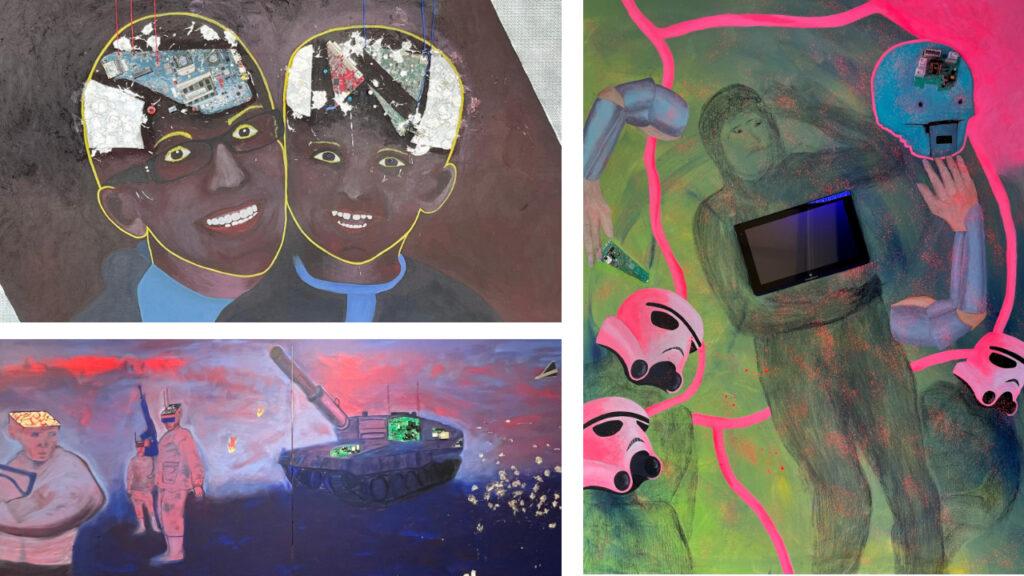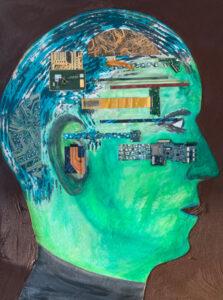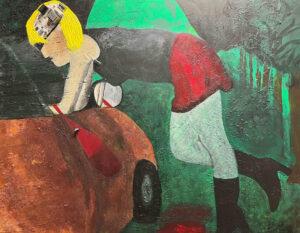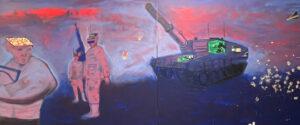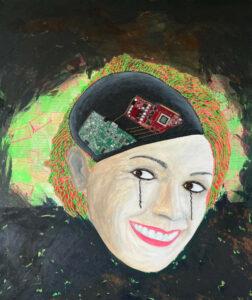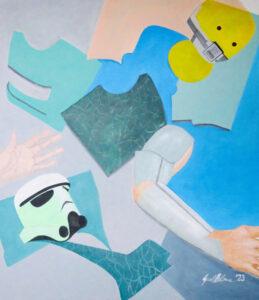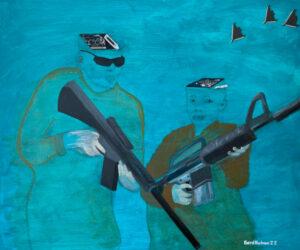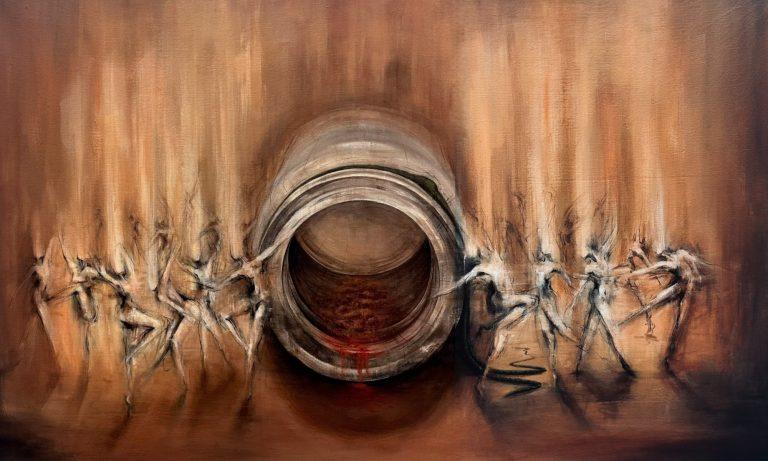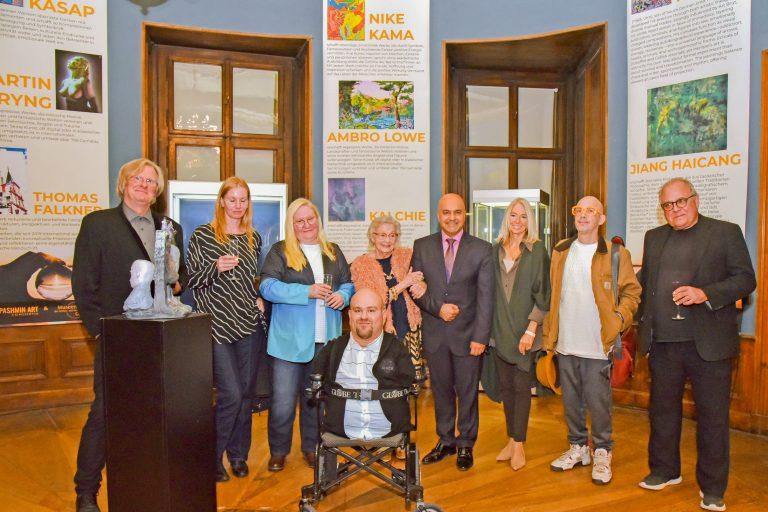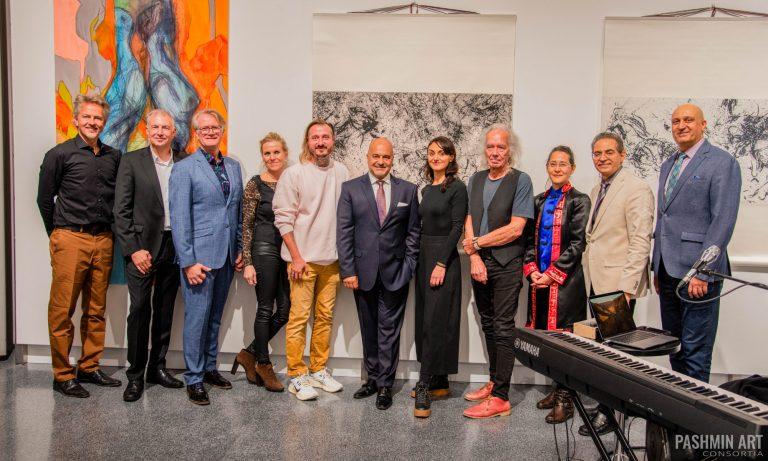Posthumanism, a discourse that explores the evolving nature of humanity in the face of rapid technological advancement, offers a provocative lens through which we can examine Gerd Rehme’s artistic journey. Central to posthumanism is the idea that human beings and technology are not distinct, but rather co-evolving entities. Within this paradigm, Rehme’s work becomes a vibrant interrogation of the intersections between human essence and the technological realm.
From the seaside inspirations of Travemünde, Germany, Rehme transformed from a portrait photographer into a master of acryl painting, mentored by such greats as Ute Wöllmann, the founder of the “Akademie für Malerei Berlin” and master student under Professor Georg Baselitz.
Rehme’s work is a testament to the symbiosis of painting’s rich legacy with the pressing narratives of our times. His portfolio, spanning from abstract to figurative, includes innovative techniques like photo-painting collages and critical examinations of themes like identity and artificial intelligence. This intertwining of humanity and technology paints a canvas ripe with posthumanist intrigue.
It is within this context that Rehme grapples with profound contemporary topics. Cybernetics, ecology, posthumanism, climate change, and the nature of violence all find their voice in his art. By blending the intricacies of human nature with the greater environmental narrative, Rehme offers a visual journey charged with urgency and reflection. His dynamic color palettes and energetic designs captivate viewers, pushing them to introspect on our collective journey through a posthumanist lens.
A striking aspect of Rehme’s oeuvre is the marriage of traditional painting techniques with modern technological elements. His collages, embedded with computer parts, offer rusted relics symbolizing unchecked technological progression’s potential dangers. Notably, works like “A.I.”, “Robota”, and “Human?” probe into the ever-growing domain of AI, and its potential to overshadow human capabilities.
In his piece “A.I. First”, “K.I.L.L.E.R.”, and “A.I.-Fighter”, Rehme ventures into the grim realm of AI in warfare. The showcased dehumanization and the rising perils of machine-dominated warfare starkly underline the treacherous waters of modern warfare steered by AI.
Furthermore, works such as “Transhumain” meditate on the convergence of human biology and technology, painting a vision of evolutionary prospects. “Transformation”, with its myriad components and hues, is emblematic of the seamless fusion of digital and traditional realms in a posthumanist world.
A poignant discourse arises with Rehme’s “A.I. Artificial love” [“K.L. Künstliche Liebe”]. The presence of a robotic sex worker in the artwork sparks discussions on technology, intimacy, and ethical boundaries in the posthuman era. Such a layered exploration urges viewers to question the ramifications of AI-enhanced experiences, testing the waters of genuine emotions in a tech-saturated age.
To encapsulate, Gerd Rehme’s artistic narrative is more than a visual delight—it’s a profound commentary on humanity’s interplay with technology, channeled through a posthumanist perspective. Beyond the visual allure, his works invite deep reflection on the dynamic synergy between human essence, tech evolution, and the ethical dimensions intrinsic to our shared future.
Davood Khazaie , Literary Art Critic and International Curator
Link: Gerd Rehme
